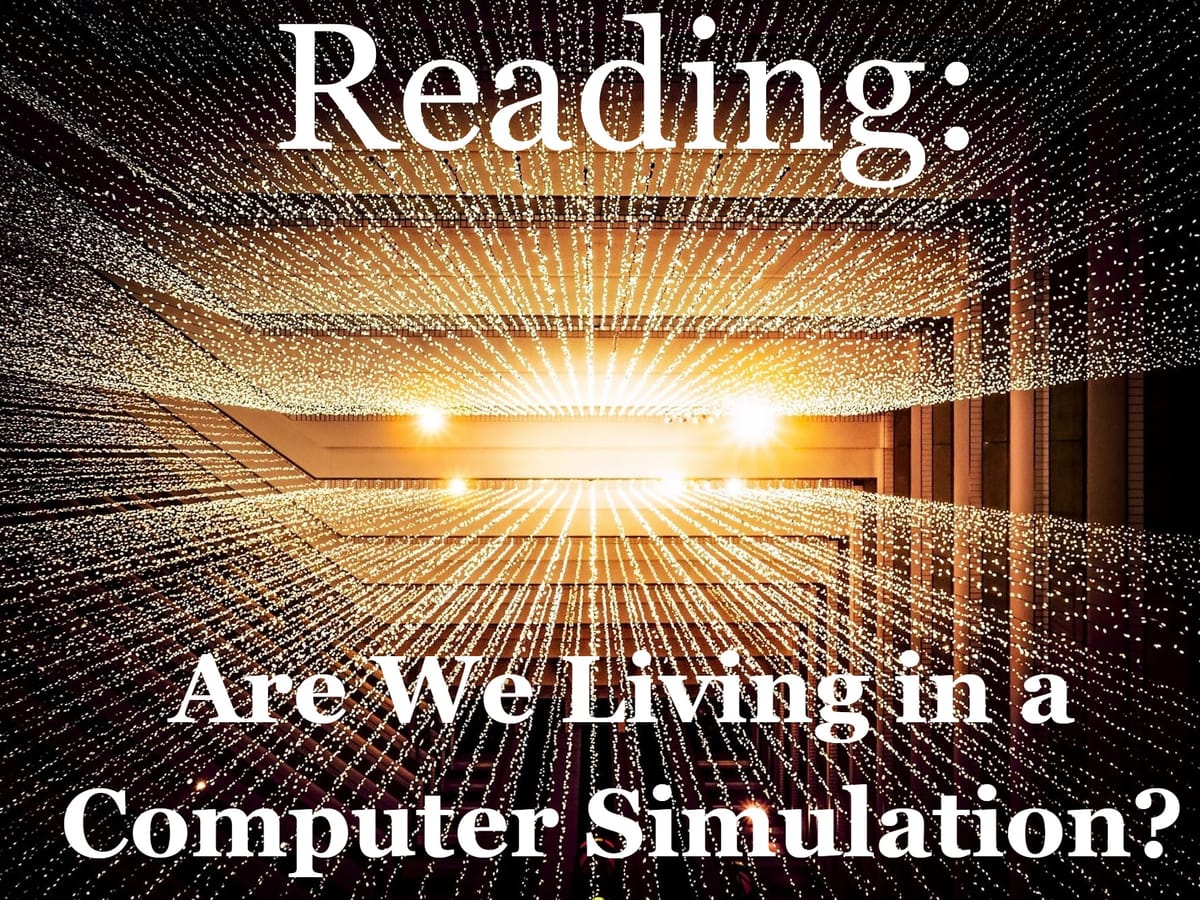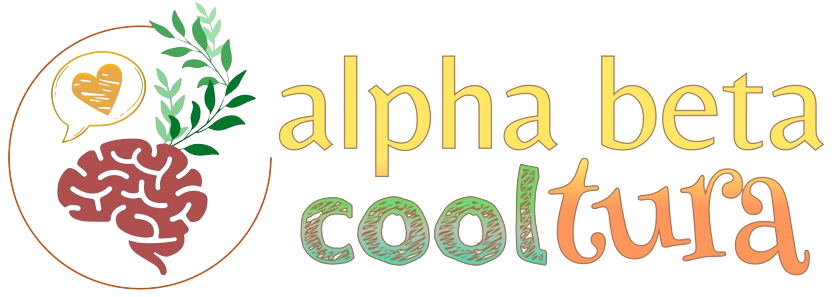🌐 Reading: Are We Living in a Computer Simulation? (Живеем ли в компютърна симулация?)
Напоследък темите за изкуствения интелект и компютърните симулации са сред най-обсъжданите и интригуващи. Ако и теб те вълнуват, време е да се потопиш в този урок за четене, където ще упражниш знанията си за модални глаголи и глаголни времена.

👑 LESSON CONTENT
- Vocabulary: New Words (Нови и непознати думи от текста на Reading)
- Reading: Are We Living in a Computer Simulation? ( Текст за четене - Живеем ли в компютърна симулация?)
- Grammar: Modal Verbs, Verb Tenses & Asking questions (Граматични знадачи - модални глаголи, глаголни времена и задаване на въпроси)
- Downloads: Answer Sheet (Отговори на задачите от Grammar)
---
НИВО: B2
ЦЕЛИ: Упражняване на уменията за четене с разбиране и затвърждаване на знанията за модалните глаголи и граматическите времена.
ПРЕДВАРИТЕЛНИ ЗНАНИЯ: Modal Verbs, Verb Tenses (Present Simple, Past Simple, Present Continuous, Present Perfect)
НЕОБХОДИМО: Материали за писане - тетрадка, листи, химикали.
💬 Vocabulary
New words
Преди да започнеш с четенето, прегледай думите, които сме подбрали, за да видиш дали имаш непознати. Ако срещнеш нови за теб думи, запиши ги в тетрадка-речник, на флаш карти или в приложение в телефона си.
📜 Списък с непознати nouns (съществителни имена) от текста
- hypothesis - an assumption or an idea that is proposed in an argument and can be tested to see if it might be true (хипотеза)
- maturity - the state of being mentally and emotionally well-developed (зрялост)
- being (pl. beings) - something that exists, creature (същество)
- advancement - development, improvement, progress (постижение, напредък)
- field - an area of activity or interest (област)
- evidence - anything that can be used to prove something (доказателство)
- understanding - knowledge about a subject, situation, or about how something works (разбиране, схващане)
📜 Списък с непознати adjectives (прилагателни имена) от текста
- intriguing - very interesting, curious (интригуващ, запленителен)
- unreasonable - not based on logic and good judgement (неразумен, неприемлив)
- unlikely - improbable, not likely to happen (малко вероятен)
- appealing - attractive, interesting (привлекателен)
- countless - too many to count, a lot (безброй, множество)
- mind-boggling - extremely difficult to understand or imagine (умопомрачителен, смайващ)
- complex - very complicated (комплексен, сложен)
📜 Списък с непознати verbs (глаголи) от текста
- popularize - make something liked and popular among people (популяризирам)
📜 Списък с непознати adverbs (наречия) от текста
- statistically - according to statistics (статистически)
- additionally = also, in addition (допълнително, в допълнение)
📜 Списък с непознати idioms (идиоми) от текста
- to be trapped - to be in an unpleasant situation in which you lack freedom (уловен, попаднал в капан)
- gain attention = attract (привличам внимание, печеля внимание)
- make the chances high - to make something possible to become true (увеличава шансовете)
- reach a point - to arrive somewhere (стигам до момент)
- one in billions - extremely rare (едно на милиард)
- raise a question - to start talking about something that you want other people to think about (повдигам въпрос)
- break free - escape from imprisonment (освобождавам се)
📜 Списък с непознати expressions (изрази) от текста
- higher-dimensional universe - dimensions beyond the three spatial dimensions - length, width, and height (Вселена с повече от три измерения - дължина, ширина и височина)
- artificial intelligence (AI) - the simulation of human intelligence processed computers (изкуствен интелект)
- virtual reality (VR) - a computer simulated three-dimensional (3D) environment which can be explored and interacted with by a person (виртуална реалност)
- arguments against - give reasons why you think something it is wrong (аргументи против)
- sense of reality - а way of understanding or interpreting the world around us (усещане за реалност)
- free will - to be able to choose between different actions
📖 Reading
Are We Living in a Computer Simulation?
You may have seen The Matrix films, where humans are trapped within a simulated world, a virtual reality, and their energy is being used by machines. It's an intriguing idea and one that has gained attention from some scientists and philosophers. So, could it be possible that our reality is just an elaborate computer simulation?
The Simulation Hypothesis
The simulation hypothesis suggests that our entire reality is being generated by a supercomputer in a higher-dimensional universe. This idea has been popularized by philosophers like Nick Bostrom and scientists like Elon Musk. They believe if advanced civilizations exist, they would have the technology to create realistic simulations and that we could be part of one. After all, we are already creating basic simulations ourselves. Just think of your favourite video game! Some argue that if we can create virtual simulations today, it's not unreasonable to think that more advanced civilizations could create even more realistic simulations.
The Simulation Argument
Oxford philosopher Nick Bostrom proposed the simulation argument, suggesting that one of the following statements is highly likely to be true:
- The human civilization is unlikely to reach a technological maturity where we can create sophisticated simulations, including conscious beings.
- Any human-level civilization that can create such simulations is unlikely to run a significant number of them.
- We are almost certainly living in a computer simulation.
The first statement seems unlikely given our current technological advancements and our progress in fields like artificial intelligence and virtual reality. The second statement is where it gets interesting. If we do reach a point where running simulations is possible, it could be so appealing and useful that countless simulations would be created, making the chances high that we are in one.
Evidence for the Simulation Hypothesis
There is no direct evidence to support the simulation hypothesis, but some indirect evidence has been proposed. One such piece of evidence is the "simulation argument," which states that if advanced civilizations could create simulated realities, it's statistically more likely that we are living in a simulation than not. Elon Musk has even suggested that the chances of us not living in a simulation are one in billions.
Arguments Against the Simulation Hypothesis
However, there are also arguments against the simulation hypothesis. Critics argue that there are limitations to our understanding of physics and computer science, making it unlikely that we could ever create a perfect simulation. Additionally, some philosophers argue that there's no way to prove or disprove the simulation hypothesis.
Final Thoughts
It's a mind-boggling concept, and one that raises many questions. If this is a simulation, who are the simulators? Are they even human? Are the simulation's creators observing us? Can we ever truly know the rules of the simulation? Could we ever break free? And what does it mean for our sense of reality and free will? These questions are complex and difficult to answer, especially as we have no way of testing this theory at present.
⚔️ Grammar
Modal Verbs, Verb Tenses & Asking questions
1. Find 12 modal verbs in the text and write them down in your notebook.
Спомняш ли си какво са модални глаголи и кои са те? Прегледай текста отново и потърси 12 модални глагола. Запиши ги в тетрадка.
2. Identify the tenses in these sentences.
Определи в кои глаголни времена са поставени глаголите в тези изречения. Запиши ги в тетрадка.
- It's an intriguing idea and one that has gained attention from some scientists and philosophers.
- After all, we are already creating basic simulations ourselves.
- This concept raises many questions.
- Oxford philosopher Nick Bostrom proposed the simulation argument.
- We are almost certainly living in a computer simulation.
- However, there are also arguments against the simulation hypothesis.
- Critics argue that there are limitations to our understanding of physics and computer science.
- And what does it mean for our sense of reality and free will?
3. Transform these sentences into questions.
От следните съобщителни изречения направи въпросителни. Запиши въпросите си в тетрадка.
На първо място стои спомагателния или модалния глагол, следван от подлога (съществително име или местоимение), а накрая добавяме останалата информация от изречението. Завършваме с въпросителен знак, разбира се.
- It's an intriguing idea.
- We are already creating basic simulations ourselves.
- They would have the technology to create realistic simulations.
- It would attract a lot of interest.
- There are arguments against the simulation hypothesis.
- These questions are complex and difficult to answer.
📃 Downloads
Answer Sheet
От тук можеш да изтеглиш отговорите на задачите от Grammar.
